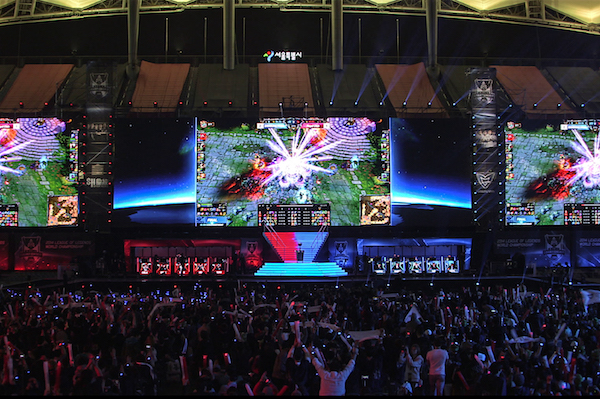What’s next in…game shows?
Looking for your next hit format? From real-time audience engagement, giant set pieces and celeb-centric formats, experts weigh in on what will be hot in 2017.

Canada has produced its fair share of unscripted hits (anyone heard of The Property Brothers?). But if you’re looking to get ahead of the trends, Playback spoke with experts in unscripted and factual to find out what will be hot in 2017 – and what will fall out of fashion. Here, Amos Neumann, COO of Armoza Formats (the company behind factual series as Still Standing); Jim Berger, CEO of High Noon Entertainment (Cake Boss); Rob Lee, president non-scripted programming, Keshet International (Rising Star); and Harry Gamsu, VP format acquisitions and sales, Red Arrow International (Married at First Sight), make predictions for the year ahead. First up: game shows.
“The usual quiz shows are getting dated,” says Armoza Formats’ Neumann. Audiences have tired of that format, he said, and companies are looking for different forms of storytelling within the genre. That’s why in recent years we’ve seen an increase in physical game shows on our TV screens, he said, and gave the example of American Ninja Warrior, which was recently renewed for a ninth season on NBC.
Looking ahead, Neumann said production companies need to think about attracting younger audiences, as the traditional demo of game show viewer skews older. One way to attract younger audiences, he said, is through audience engagement. “I know it’s just a buzzword and it didn’t really translate into traditional television until now, but if I had to guess [I’d say] a lot of the players will try to perfect their audience engagement abilities [and look to] real-time game-show participants.”
Keshet International’s Lee agrees. One way to engage with audiences, and a trend to watch in game shows, he said, is finding that next cool app or device that has built-in audience recognition. In the U.S., Fox is developing Beat Shazam around the music identifying app, while CBS is banking on a live-action Candy Crush game show.
“[These offer] pre-sold interest based on apps that have received tens, hundreds of millions, sometimes billions of views in advance and then developing the proper game around it,” he said.
But if you’ve got a game show idea, who will commission it? “I think [game is] going to remain strong at the broadcast networks,” said High Noon’s Berger. “You’re seeing some success year after year with shiny-floor game. I think you’re not seeing game as much in cable. You’re seeing it at the Game Show Network, of course. Other than Game Show Network, you’re not seeing a lot of other networks do game.”
And well before you pitch a game, Berger said, make sure you’ve got the talent lined up. “At the broadcast level, if you’re going to pitch a game, you’ve got to come in and have it packaged with a big host already. It’s nearly impossible to sell a game format to big broadcast networks without a pretty big talent,” he said.
He points to Lip Sync Battle and Carpool Karaoke, two nontraditional game shows. “Those are very hard to pull off for regular producers because both of those emanated from Jimmy Fallon, James Corden. Those all started as segments of their shows, which is awesome by the way,” he said. “I think [that’s] a good lesson for all of us to say those are out-of-the-box, different kinds of formats.”
Whether it’s with talent, an app or a new cool way of engaging with audiences, one thing is certain: to succeed in prime time you need a new, flashy idea.
“In prime time you need that big hit. It’s not enough anymore to give away one million pounds, so when [Who Wants to Be a] Millionaire started that was massive. People thought that was a crazy idea to give away a million pounds on screen or potentially do that. Now viewers aren’t shocked by that,” said Harry Gamsu, VP format acquisitions and sales, Red Arrow International. “So what’s that twist? How are we going to shock people and engage people in prime time in game shows?”
Increasingly, Gamsu said, that “twist” has been an interesting or particularly large set piece. “It needs to be almost built into the show, some big mechanical set piece that you interact with in order for it to stand out in prime time.”
Keshet International’s Lee points to the upcoming NBC game show The Wall, executive produced by Lebron James, that’s based on a simple premise: answer questions correctly, win money. But the set plays an important role in the game. When a contestant answers a question, a ball is dropped down a four-foot wall with various prize amounts at the bottom – more than $12 million is up for grabs every episode. If the contestant answers a question correctly, they win the corresponding amount of money, but if they answer incorrectly, that money is taken away.
So put your thinking caps on producers, the next big game show idea could be one app or party game away.





 The definitive CDN broadcast and production resource.
The definitive CDN broadcast and production resource.










